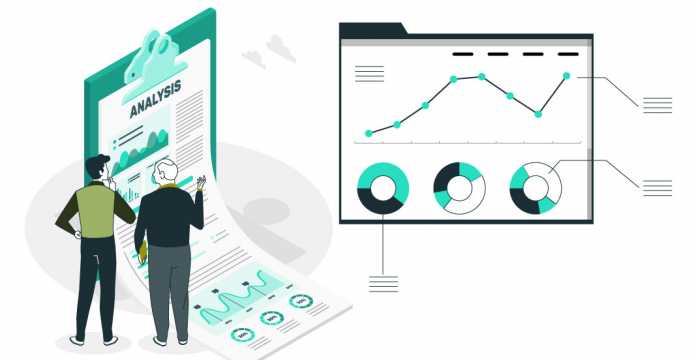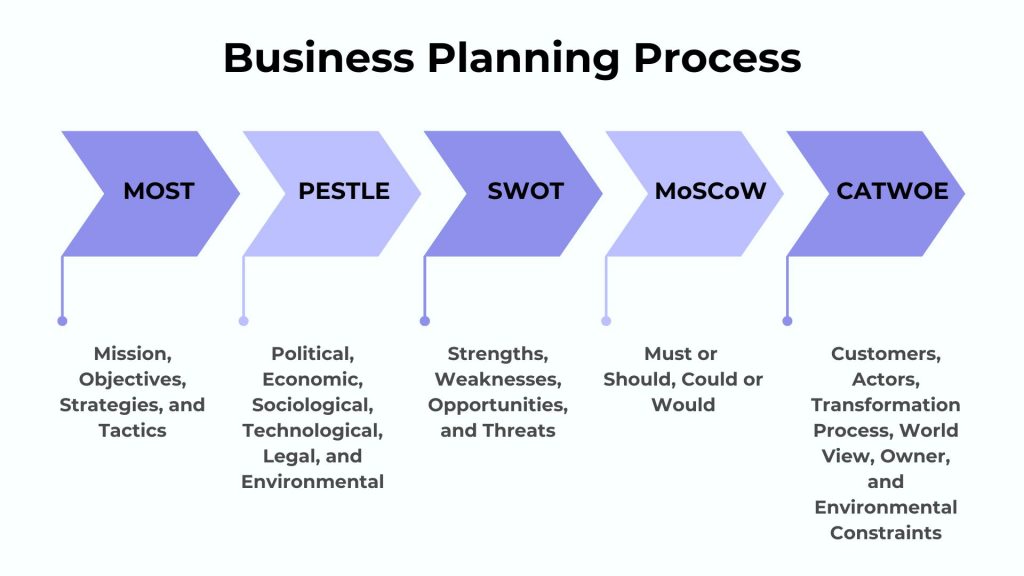
Table of Contents:
- Introduction
- What is Business Analysis?
- Why is Business Analysis Helpful?
- Common Business Analysis Techniques
- Reasons to Become a Business Analyst
- How is Business Analysis Different From Other Professions?
- Business Analyst Jobs
- Conclusion
Introduction
Business analysis is crucial for enabling meaningful change within organizations. It directly addresses the complex needs of stakeholders to enhance overall efficiency and competitiveness. As markets evolve and technology advances rapidly, the demand for skilled business analysts has significantly increased. These professionals are central to identifying business needs and devising strategic solutions that improve performance and drive success.
Business analysts use various techniques to plan and implement changes meticulously, ensuring organizations adapt and thrive. Their role extends to deeply understanding and optimizing an organization’s structure, processes, policies, and operations. In this article, we will explore the definition of business analysis and discuss various techniques that are essential to the profession.
What is Business Analysis?
Business analysis is the practice of:
- Understanding the structures and policies of an organization
- Recommending solutions that enable the organization to achieve its strategic goals
- Working as a liaison between stakeholders and IT departments
So, now you guys know what business analysis means. Different governing bodies such as the International Institute of Business Analysis (IIBA), Project Management Institute (PMI), and British Computer Society (BCS) have helped to standardize the Business Analysis profession. Let’s take a look at the BA definitions from these groups that are setting current standards.
According to the IIBA International Institute of Business Analysis, “Business Analysis is the practice of enabling change in an organizational context by defining needs and recommending solutions that deliver value to stakeholders.”
According to PMI, Project Management Institute, “Business Analysis is Identifying business needs. Recommending relevant solutions. Working with stakeholders to elicit requirements. Analyzing, defining, documenting, and managing requirements.”
Why is Business Analysis Helpful?
Business analysis plays a vital role in every organization. It helps in identifying business needs/requirements and formulating solutions for any business problems. Business analysis helps in improving the effectiveness of IT with better alignment between business and technical needs. It helps to identify and articulate the need for change and how organizations must work to facilitate that change. Overall it helps organizations do business better.
Organizations use business analysis, for:
- Generating effective solutions
- Providing the required documentation
- Assigning sufficient resources
- Achieving greater efficiency
- Modelling the entire organizations
- Identifying new opportunities
- Achieving goals
- Providing value to stakeholders
- Making correct business decisions
Now that we have learned different definitions of business analysis let us explore various business analysis techniques that organizations are currently using.
Common Business Analysis Techniques
Business analysis techniques are essential tools that guide organizations in understanding challenges, making informed decisions, and implementing effective solutions. Below, we will explain some of the most widely used methodologies that help analysts navigate the complexities of modern business environments.
1. MOST Analysis
MOST Analysis is a strategic framework that aligns an organization’s actions with its own purpose. It includes a thorough internal evaluation of how to effectively achieve the organization’s goals. The acronym stands for:
- Mission: What is the organization’s overarching purpose?
- Objectives: What specific targets are set to achieve the mission?
- Strategies: What are the various approaches to reach these objectives?
- Tactics: What specific actions will the organization undertake to execute these strategies?
2. PESTLE Analysis
PESTLE Analysis is a comprehensive tool to assess external factors impacting an organization, aiding in strategic environmental scanning. The acronym stands for:
- Political: What are the political factors that might influence the organization?
- Economic: How do economic conditions affect the organization?
- Sociological: What social and cultural aspects impact the organization?
- Technological: What technological changes could influence the organization?
- Legal: What legal factors must the organization consider?
- Environmental: What are the environmental considerations that affect the organization?
3. SWOT Analysis
SWOT Analysis is a fundamental technique for strategic planning, providing a clear assessment of internal and external factors. The acronym stands for:
- Strengths: What advantages does the organization have?
- Weaknesses: Where does the organization have disadvantages?
- Opportunities: What opportunities are available for the organization?
- Threats: What challenges might the organization face?
4. MoSCoW Method
MoSCoW Method is a prioritization technique used in project management and business analysis to reach consensus on the importance of delivering each requirement. The acronym stands for:
- Must have: Requirements critical for project success
- Should have: Important features that are not vital but should be included if possible
- Could have: Desirable features that are not necessary and can be included if they do not impact the project significantly
- Would have: Optional features that could be considered for future updates
5. CATWOE Analysis
CATWOE Analysis is a problem-solving approach that helps stakeholders understand the impacts of potential changes by analyzing different perspectives. The acronym stands for:
- Customers: Who benefits or suffers from the process?
- Actors: Who is involved in implementing the solutions?
- Transformation Process: What change does the solution involve?
- World View: What is the big picture, and why is this change necessary?
- Owner: Who owns or is responsible for the process?
- Environmental Constraints: What external factors or limitations affect the situation?
Apart from these techniques, there are many others, such as brainstorming, mind mapping, business process modelling (BPM), and use case modelling. It is important for business analysts to familiarize themselves with most of these techniques. Now, you might be wondering why you should even become a business analyst in the first place, right? For the rest of this business analysis definition article, let us try to answer this question.
Reasons to Become a Business Analyst
Choosing a career as a business analyst offers the unique opportunity to significantly impact an organization’s strategy and success. Here, we explore the compelling reasons why this role is not only crucial but also rewarding in today’s business landscape
- It’s a flexible job role. You get to work on technical and business streams
- There is a great demand in this field, and you can expect essential career growth
- Due to its enormous growth, the salary paid is also high
- You get to learn new and innovative things
- You can interact with colleagues to know the needs of the business
- You can polish your communication skills by collaborating with stakeholders and by trying to understand their needs
- You can become an expert in conducting surveys, workshops, and different levels of tests such as functional tests, unit tests, etc.
- You can learn how to analyze and model data to deliver a great product, formulate suggestions and strategic solutions, validate the results obtained and discover appropriate trends in the system
How is Business Analysis Different From Other Professions?
Business analysis work includes communicating among stakeholders, development teams, testing teams, and other departments. There are many other job roles that have similar job descriptions as that of a business analyst such as IT business analysts, technical business analysts, online business analysts, business systems analysts, or systems analysts. So, how is business analysis different from these job roles?
Business analysis is slightly different from financial research, project management, quality assurance, organizational development, testing, training, documentation, and several other actions. But, depending on the organizational goals, a business analyst will act in one of the roles mentioned above.
Difference Between a Business Analyst and a System Analyst
The business analyst profession requires an entirely different set of necessary skills involving eliciting, analyzing, communicating, testing, and verifying requirements, and identifying the path to solve business problems and improve processes. On the other hand, system analysts mainly focus on creating and implementing specific systems with a more technical approach to the work.
Difference Between a Business Analyst and a Data Analyst
A business analyst’s responsibilities depend on industry standards, and the main objective includes analyzing and deriving relevant solutions from data to meet business requirements. On the other side, data analysts help companies by analyzing data and using that data to perform proper actions to present value to the business stakeholders. Data analysts also indulge themselves in providing competitive analysis or in identifying business or marketing trends.
Difference Between a Business Analysis and Data Analytics
In the business world, the terms business analytics and business analysis sound very similar. The primary difference between the two processes is that business analysis is more related to functions and operations. It depends on its architecture streams such as process architecture and enterprise architecture, whereas business analytics is usually dependent on data and reporting. It involves skills, technologies, past performance investigation, and information search.
Business Analyst Jobs
Presently, the business analyst role is in high demand. According to Payscale, an entry-level Business Analyst with less than one year of experience gets an average salary of $61,962. A business analyst with 1 to 4 years of experience earns an average salary of $66,198. A mid-career business analyst having 5 to 9 years of experience makes an average of $73,496. An experienced business analyst with 10 to 19 years of experience earns an average of $78,202.
Skilled business analysts are a vital part of a business structure because they are responsible for multitasking and doing many jobs like reporting, documenting, creating solutions, and tracking the stakeholder’s needs at the same time. According to a survey done by the Bureau of Labor Statistics, the business analyst role is likely to grow 13% by 2032. More the reason to consider a career in business analysis.
Conclusion
Applying business analysis techniques to a situation can make you an attractive applicant for jobs at many different companies and industries. In the present time of a rapidly changing business environment, companies that will identify and adapt to the new opportunities may find greater success than those still neutral. Whether you are looking to change your career domains or advance within your present company, acquiring a business certification can give you a wealth of opportunities.
I hope you found this article on business analysis definition informative and interesting. If you want to become a Certified Business Analysis Professional do check out the Business Analysis Certification training offered by Invensis Learning. This program is in line with EXIN’s Business Analysis certification exam.

















